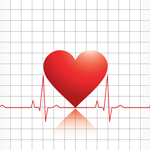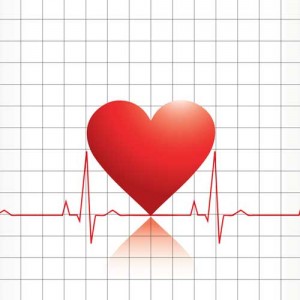Lessons Learned from the Beating of a Heart

 It all started in August, 2007. I rushed from work, trying to get to Ethan’s football game (Ethan is my oldest child and was 8 years old at the time). Shortly after my arrival, the coach screamed up to my husband and me to get our son because something was wrong with his heart. The coaches called 911 as Ethan collapsed into my arms, asking, “Am I dying, Mom?; Tell me, am I dying?” Truthfully, I did not know the answer. His heart was beating at such a fast rate it felt like it was pounding out of his chest. The ambulance arrived to the football field, and Ethan and I entered the vehicle so that the EMT could obtain assessments of his vital signs. By that time, his heart rate had regulated, though we were sent to the children’s hospital emergency room for further medical testing. His tests were determined to be normal, and health professionals concluded that his “heart-racing” episode was due to dehydration and/or stress and anxiety.
It all started in August, 2007. I rushed from work, trying to get to Ethan’s football game (Ethan is my oldest child and was 8 years old at the time). Shortly after my arrival, the coach screamed up to my husband and me to get our son because something was wrong with his heart. The coaches called 911 as Ethan collapsed into my arms, asking, “Am I dying, Mom?; Tell me, am I dying?” Truthfully, I did not know the answer. His heart was beating at such a fast rate it felt like it was pounding out of his chest. The ambulance arrived to the football field, and Ethan and I entered the vehicle so that the EMT could obtain assessments of his vital signs. By that time, his heart rate had regulated, though we were sent to the children’s hospital emergency room for further medical testing. His tests were determined to be normal, and health professionals concluded that his “heart-racing” episode was due to dehydration and/or stress and anxiety.
For the next two years, Ethan experienced multiple “heart-racing” episodes, mainly at school while engaging in exercise. The nurse would call me in a panic, and I would explain to her that his physicians regarded him as healthy with no known heart problems. During the course of these two years, I had taken Ethan on two separate occasions to the cardiologist, in addition to multiple trips to the pediatrician. Again, no known abnormalities were identified in the functioning of his heart. You can imagine the frustration we started to feel as a family without understanding the reason for these episodes. Despite this uncertainty, Ethan would calmly tell his teachers when his palpitations began. Subsequently, the school nurse established a protocol for his condition, which included the following steps: 1) teachers were instructed to call the nurse; 2) the nurse would transport Ethan with a wheelchair; 3) she would bring him back to the health clinic; and 4) allow him to lay down until his heart rate normalized and he no longer felt dizzy and light-headed. It is important note that, until this point, I had not seen the course of his heart-racing episodes from beginning to end, as they tended to occur at school.
Then, one day in March, 2009, on a family beach vacation, I saw the course of the whole episode with my own eyes. I observed his immediate change in affect, his feelings of dizziness and nausea, and eventually his inability to walk due to fatigue. I helped him walk off the beach, trying to get him into a shaded area. He could not even get across the bridge to the street; he needed to sit against the side of the bridge. At that point, my eyes caught the vivid picture of his heart beating out of his chest, having a life of its own, beating so extremely fast that no one could possibly obtain an accurate heart-rate reading by manual means. Then, as quickly as it commenced, he suddenly let out a big sigh, and said, “Oh, good, it’s done.” Upon my prompting, he explained to me that the course of these episodes always occurred in this manner. Particularly with my training of being a clinical health psychologist, I knew with 100 percent certainty that his heart racing was not a result of dehydration or any type of anxiety. With quiet strength and without disclosing my thoughts to avoid voiced opposition from anyone, I promised myself with a renewed conviction that, following our trip, I would take him to the cardiologist for the third time. Upon our return home, I informed Ethan that I made another appointment with the cardiologist and inquired whether he thought he needed to attend. He immediately looked up at me, stating that he wanted to go because he knew that there was something absolutely wrong with his heart.
While in the cardiologist’s office, the physicians and nurses again were ready to tell us that his heart was structurally sound. I informed them that they were not being accurate since his episodes were exercise-induced, and I was not leaving the office until they put him on a heart monitor. They agreed to do so, and two days later, Ethan had an episode. Like a trooper, he recorded it as instructed to get an accurate reading. Ethan’s condition was finally identified: Supraventricular Tachycardia (SVT).
SVT is one type of heart-rhythm disorder. A normal heartbeat occurs 60 to 90 times per minute; Ethan’s was recorded at 283 beats per minute. Therefore, it is not a surprise that he becomes dizzy and light-headed during these palpitations since the blood in his body is not flowing to his organs as needed. The good news is that it is not a life-threatening condition, and individuals with this disorder can live a normal life without restrictions. The bad news is that Ethan has had this condition chronically, despite two heart ablations, conducted in May, 2009, and then in November, 2009. He continues to have tachycardia at random times, no longer merely restricted to exercise-induced behavior.
What did we as a family, and especially Ethan, learn from this painfully long experience of the unknown and managing a chronic condition? I am so proud of my son, who is now 11 years old. He truly has handled this medical abnormality and nuisance in life with grace, maturity and great responsibility. He takes care of the heart-monitoring equipment with finesse and quick responses as needed, and he is quite articulate when describing his condition to friends, family and school personnel. Most importantly, he has learned from my and my husband’s guidance that it is not a choice to refrain from living his life the way he wants. He is a great athlete and loves sports. With medical clearance, he can keep playing sports, despite his continued occurrence of tachycardia. He merely knows to sit out when an episode occurs and either put ice on his face or engage in vasovagal maneuvers to regulate his heart rate. When the palpitations stop, he resumes his activity. As a mother, this experience has taught me to fight for my children and be persistent when I, or my children, know that something is wrong despite outcomes of medical testing. It has reinforced me to trust my maternal instincts without hesitation—even when others question my judgment.
I believe Ethan’s maturity and empathy has evolved as a result of coping with such a serious matter at such a young age. He has a deep appreciation for others who are vulnerable, disadvantaged and experiencing pain. Ethan has aspirations of being a cardiologist, indicating that he would like to help other kids who are fearful about the condition of their heart . I think it would be safe to say that although Ethan’s heart may not have the same pace as you and me, his emotional heart most certainly does not skip a beat.

As I read your post, I could have exchanged your son’s name with my owns. He has similar episodes and I kept taking him back to the doctor and they kept telling nothing was wrong with him. At one point, my pediatrician told me that I needed to see a psychologist because there was nothing wrong with my child. Two months later, his twin brother had a tonic clonic seizure on my kitchen floor and his post-ictal stage had many similarities as the tachycardia episodes the other twin was having. I went around my pediatrician and had the neurologist give both twins an EEG. The results: both twins had Epilepsy! Just as in your example, it is so powerful and important to follow you mommy gut. We are almost always right.
I”m curious, if your son had an EEG; his episodes are almost word for word exactly like my son’s.